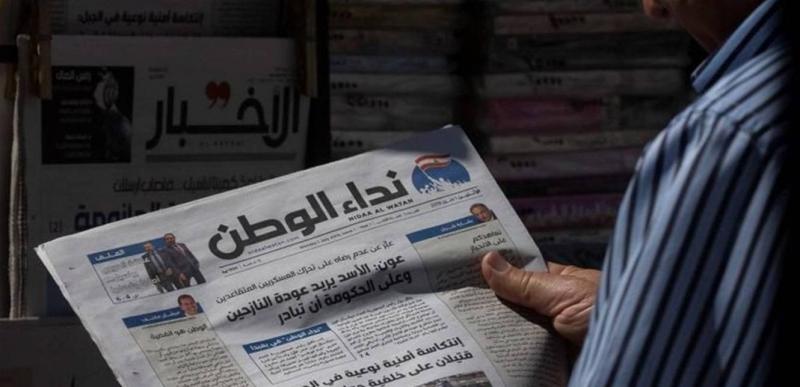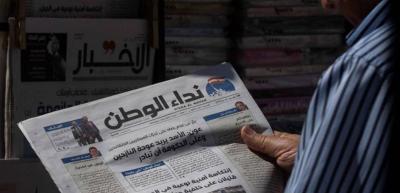Last week, the Lebanese press faced a sad, troubling, and unfortunate event with the closure of the newspaper "Voice of the Nation," which had been published for nearly five years. During this time, the newspaper served as a diverse, innovative, and youthful platform, conveying a tone of rebellion and a distinctive form of dissent compared to other published newspapers. Its editor-in-chief, Bashara Charbel, attributed the closure to a "sudden setback resembling an assassination."
While the closure of this newspaper comes amid a general decline in traditional media outlets in Lebanon and worldwide, particularly following a series of closures affecting well-established newspapers such as "Al-Safir," "Al-Anwar," "Al-Mustaqbal," and "The Daily Star," it was a phenomenon that was disturbing, shocking, and regrettable, approaching a journalistic catastrophe. The closures mostly stemmed from financial difficulties, especially amidst rising issues regarding print media, diminished sales, and low advertising revenues. However, the closure of "Voice of the Nation" bore different indications and features compared to previous closures, which primarily had material dimensions due to funding shortages.
The shutting down of "Voice of the Nation" also signals tragedies and setbacks for its journalists, who now find themselves without jobs or income amidst this exceptional and severe economic crisis. The idea of launching the newspaper emerged from the ambition and desire of political activist and businessman Michel Maktouf, who aimed to create a political project for himself. Given his alignment with the political stance of the March 14 Alliance, opposing the March 8 Alliance, the newspaper reflected this general orientation, alongside a simple and general critical and reformist inclination.
The sudden death of the newspaper's publisher, while skiing at a young age, dealt a powerful and shocking blow to the project, as the owner passed away. Subsequently, Maktouf's heirs held the responsibility of funding the newspaper's publication until last week, during which it transformed into a platform defending freedom, dissent, the right to criticize, and the rights of aggrieved depositors and citizens distressed by the Beirut Port explosion, opposing rampant thieves, brokers, and lenders, collectively referred to as "the system."
It was evident that the newspaper took a supportive stance in favor of the movement that began on October 17, 2019, referred to by some as a "popular youth uprising" or "the uprising," in a 19th-century context, while some enthusiastic extremists consider it a comprehensive Lebanese revolution. In essence, the newspaper defended the overarching line of the March 14 Forces, known as the "sovereign independence line," adding all issues that arose following the May 7, 2008 assault and the subsequent Doha Agreement, alongside Hezbollah's growing dominance in Lebanon.
The newspaper distinguished itself from others by maintaining a significant degree of critical independence regarding some parties within the March 14 Forces, carefully avoiding criticism of certain groups, particularly the Lebanese Forces. It became a refuge for freedom of opinion, critique, and independent civil aspirations, leaning towards what might be called the center-left, infused with vibrant and diverse youth spirit.
The closure of this newspaper thus signifies a severe loss, as these voices are now silenced, resulting in a painful blow to a vital and necessary group that the newspaper represented. The media and political landscape they enriched now lacks the flavor and sensitivity needed to oppose the culture of power, the open defiance of law, and the brutal disregard for lawful behavior in addressing various issues, which Lebanon desperately needs.
The closure incident exposed a growing political deficiency, incapacity, and failure among so-called opposition forces in Lebanon, which once celebrated the newspaper, its direction, and contributions but failed to save it from facing disaster or maintaining it as a unique platform opposing the rising political and media influence aligned with Iran and Syria. If these so-called "sovereign independent" opposition forces had the ingenuity or strength to find a cooperative formula to continue publishing the newspaper, they could have sustained an essential platform without needing vast funds, merely some financial support to maintain a voice against the encroaching regression.




